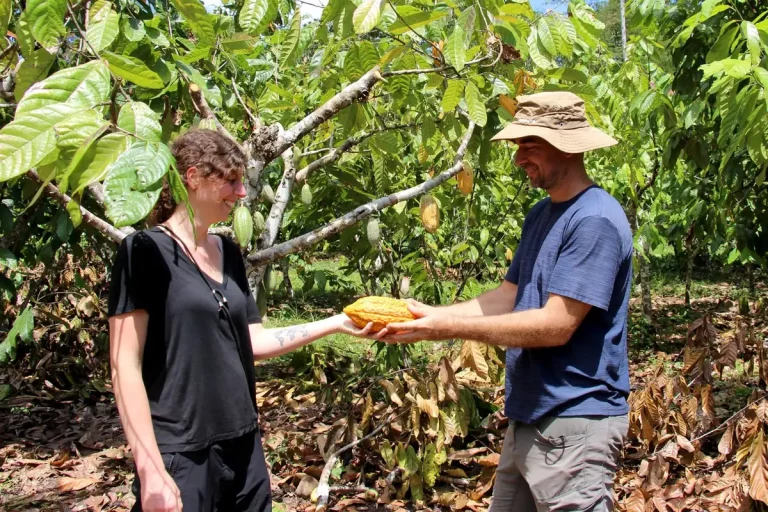Fair Trade +
Why Direct Trade is better than Fairtrade
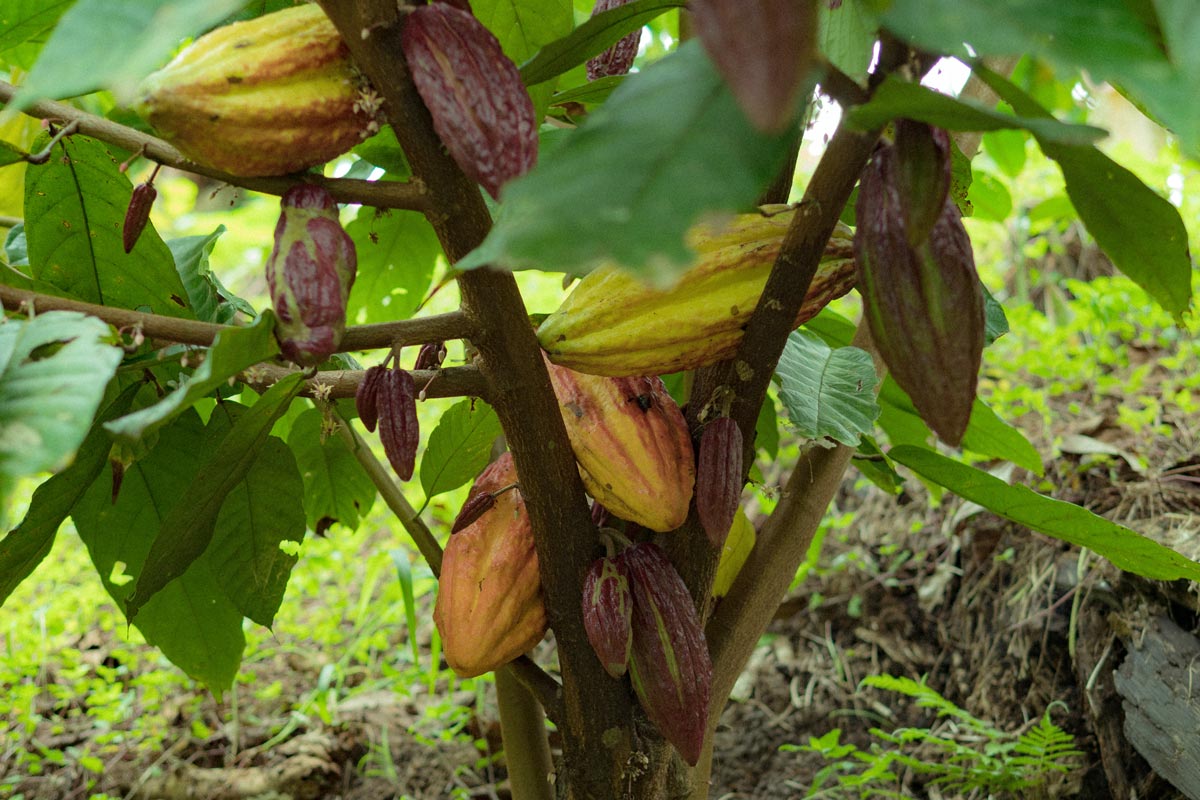
Fair trade is important to us: that’s why we source our cocoa directly from a single cocoa farm where we have lived and worked ourselves.
Fundo Qoya is a small family-run farm – from them we have learned a lot about the art of cocoa farming, with everything that goes with it. The Fundo Qoya farm not only specialises in the traditional and sustainable cultivation of cocoa, but is also committed to the people from the surrounding area, for example by organising markets and supporting young women.
We buy our cocoa directly from Fundo Qoya without any middlemen. This way, we not only know where the cocoa grows, but we can also inform ourselves directly about the working conditions on site and, above all, pay a fair price for the cocoa.
We pay 45% above the fair – organic – minimum price set by Fairtrade International.
Why do we do this? To do this, we need to backtrack a bit and explain the topic of fair trade and the various fair trade organisations and fair trade labels in more detail.
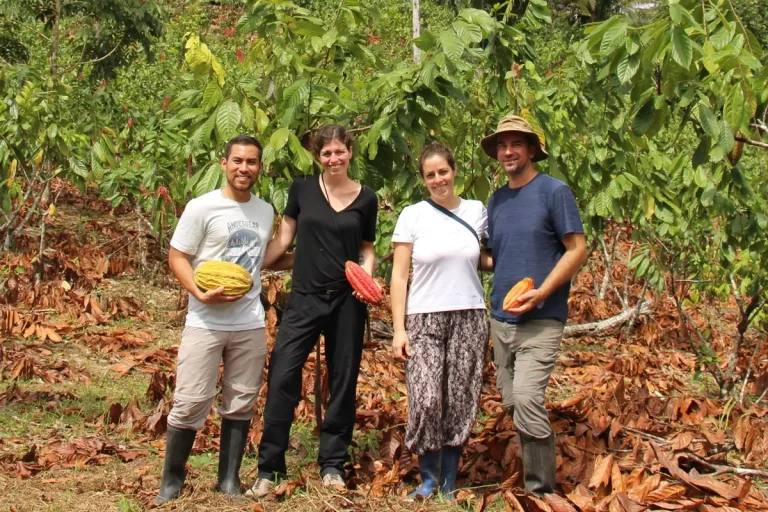
What does fair trade mean and which organisations and seals are there?
In the past, many cocoa farmers had to – and in many places still have to – work for very little money. Most of the money is earned not by the farmers themselves, but by the middlemen.
In order to improve this situation, the organisation Fairtrade International was founded in 1997: Consumers should buy more sustainably and consciously, and the organisation’s “Fairtrade” seal should serve as a guide.
The main aim was to ensure fair wages for cocoa farmers and to make them more financially independent. For example, there is an additional social premium to finance social projects in the growing region.
What was a very important step in the right direction can be made even better today, however. Because the principle of “the main thing is Fairtrade” does not go far enough: in the case of Fair Trade labels, by no means everyone involved benefits equally. The factors are not only the farmers but also the environment and sustainability, and which aspect is given priority is decided by the guidelines of the label.
Besides Fairtrade International, there are other organisations that award Fair Trade seals.
The seals are often a matter of perspective: What does the respective organisation put its emphasis on? Is it mainly about fair wages or environmental issues? The standards that the farms have to meet differ, sometimes seriously. The differences are mainly in the premiums, the incentives for quality and the type of cooperation with cooperatives. For each seal, there is a person from the organisation on site, but this person does not necessarily have to have direct contact with the producers.
The problem: there are no legal standards.
What is behind the different fair trade labels?
The different seals (“Fairtrade”, Rainforest Alliance, UTZ) work according to a similar system. The standards are defined by the organisation that awards the seal. A farm is entitled to bear a label if it meets the basic criteria of a label and successfully passes an initial verification. The criteria and intervals of the verification sometimes differ greatly.
One has to be careful here: Even if a bar of chocolate is awarded a seal, this does not mean that all the criteria are actually met 100%. The standards are not all weighted equally. Some, for example, only have to be fulfilled within a time frame of three years, others are only optional.
Sometimes you can also find packaging with a Fair Trade label where individual ingredients do not meet the criteria of the label provider. In this case, there is usually a note on the back stating that this ingredient may have been replaced by a conventional ingredient.
Furthermore, the companies and farms awarded the label do not necessarily have to be committed to fair trade in general: So the seal standard often only applies very locally.
As already mentioned, the “Fairtrade”, Rainforest Alliance and UTZ seal standards differ greatly from each other in some points. For all of them, the exact standards can be viewed online and compared with each other on every point. To give you an insight, we have briefly summarised the most important organisations that award fair trade labels.
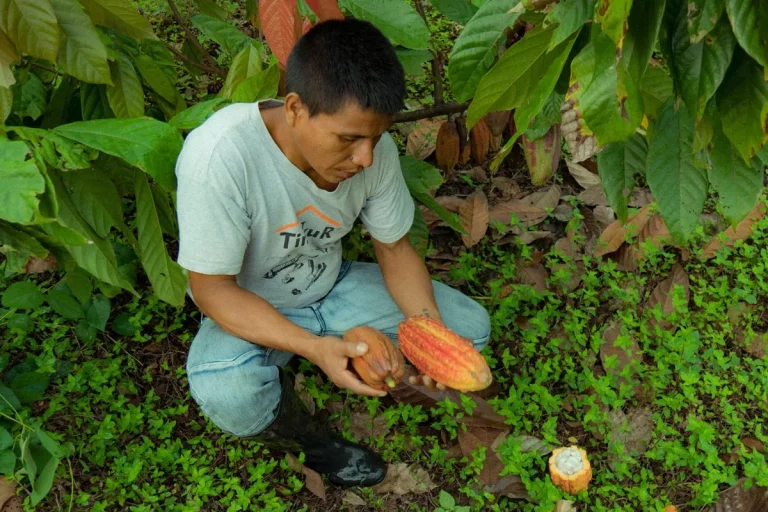
The different seals in detail
Rainforest Alliance is about the producer and the environment
The Rainforest Alliance is concerned with production methods that are in harmony with nature. The aim is to encourage cocoa farmers to work in a sustainable way, also to improve their own future. The aim is to develop sustainable farming methods and agricultural knowledge.
However, the Rainforest Alliance does not set lower price limits or pay premiums for social projects. The aim is to give farmers the basis to negotiate their own prices.
Fairtrade International focuses on poverty reduction
The objectives of Fairtrade International are to make smallholder farmers more independent and empower them to become self-reliant. Fairtrade International, or its “Fairtrade” label, focuses on their promotion and empowerment, giving them the opportunity to shape their own future in a self-determined way. The Fairtrade International standards include fixed minimum prices and the possibility of pre-financing harvests.
In addition, farmers are paid a premium for social projects depending on the amount they sell. These social projects take place in the local communities and can, for example, relate to the advancement of women.
Fairtrade International is therefore primarily committed to social issues. Sustainability and the environment, on the other hand, are less important.
UTZ creates a market for the products
With UTZ, transparency is particularly important. The entire supply chain should be transparent and traceable. UTZ also wants to create a market for fair products.
Originally, UTZ Certified concentrated mainly on larger producers and cooperatives and their farm management and professionalisation. In the meantime, however, UTZ has also opened up to smaller farms.
A fair trade label can therefore have very different focuses.
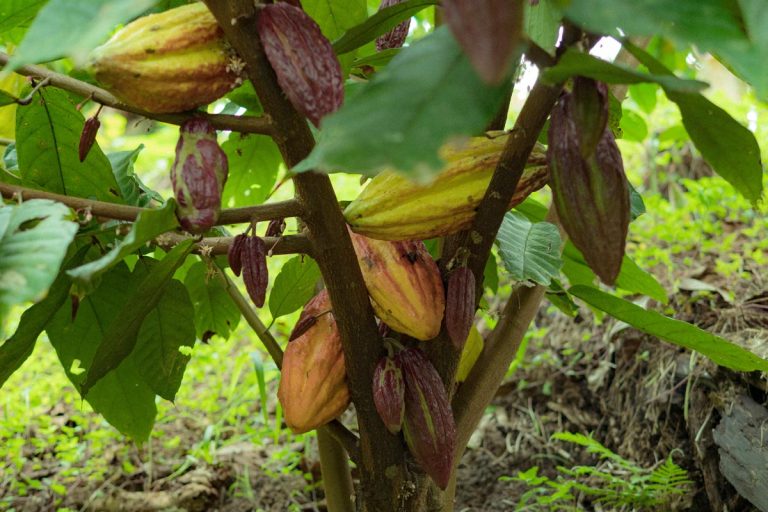
That is why we prefer direct trade
From our point of view, only direct trade is really fair trade. Only by cutting out the middlemen can we pay prices that are far above the average price. And only then can producers pay fair wages to their workers.
Normally, the producers and workers are the ones who earn the least in the value chain. With us it’s different: because no one else earns money from cocoa except the farmers, they receive much more money.
In direct trade, we can take care of the different needs of cocoa farmers, the environment and customers more comprehensively.
At Dos Estaciones we want to have as much control as possible over the supply chain of our cocoa. Our single-farm principle also gives us the opportunity to work so closely with our cocoa farm in a way that would never be possible with industrial chocolate.
We care about the quality of our cocoa, our customers, the environment and fair prices. That is why we are in constant contact with the family-run farm Fundo Quoya in Peru, from which we source our cocoa.
With this proximity, we can achieve so much. We are direct traders in order to:
- Ensure the consistent good quality of our cocoa
- Pay fair prices to the farmers
- Ensure sustainable management of land and nature
- Protect the rainforest
- To be able to decide individually what is important to us
With us, you can enjoy your fair-trade piece of chocolate – and do something good at the same time.
We don’t rely on fair trade labels, but on truly fair trade chocolate.
The fair trade organisations have certainly done a lot to make people more aware of food consumption and to check its origin more closely. Without their work, the fairness movement would never have taken off and the economic situation for producers would still be the same.
“Fairtrade” chocolate was the important beginning of this movement. But now it is time to go a step further.
